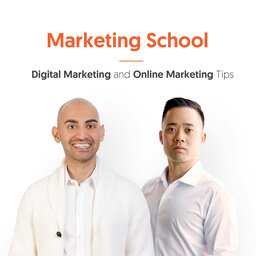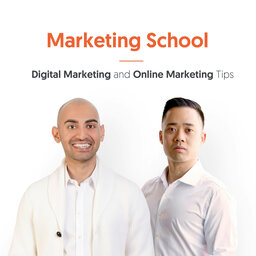2500 LinkedIn leads on Retention.com, When should you sell?, The end of Google?
In episode #2710, we delve into LinkedIn lead generation strategies such as crafting compelling content, consulting with LinkedIn experts, fostering relationships, and showcasing successes. We also discuss Retention.com's distinct approach to capturing leads with software and the challenges of duplicating their sales strategy. The discussion broadens to missed acquisition opportunities and the timing for selling. Lastly, we look ahead at Google and OpenAI's futures, especially their effects on search and affiliate marketing.
Don’t forget to help us grow by subscribing and liking on YouTube!
Check out more of Eric’s content (Leveling UP YT) and Neil’s videos (Neil Patel YT)
TIME-STAMPED SHOW NOTES:
- (00:00) Today’s topic: 2500 LinkedIn leads on Retention.com, When should you sell?, The end of Google?
- (01:15) Generating Leads on LinkedIn
- (07:42) When should you sell?
- (15:18) Is this the end of Google?
- (19:26) That’s it for today! Don’t forget to rate, review, and subscribe!
Go to https://www.marketingschool.io to learn more!
Leave Some Feedback:
- What should we talk about next? Please let us know in the comments below
- Did you enjoy this episode? If so, please leave a short review.
Connect with Us:
- Single Grain << Eric’s ad agency
- NP Digital << Neil’s ad agency
- X @neilpatel
- X @ericosiu
Marketing School - Digital Marketing and Online Marketing Tips
Neil Patel and Eric Siu bring you daily ACTIONABLE digital marketing lessons that they've learned th…Social links
Follow podcast
Recent clips

Mastermind Dinners: LeadGen That Actually Works in 2024
16:08

30M vs 500 Views - The One Change That Made All The Difference
12:35

AI concierge will affect dating - implications for business, Perplexity's AI-generated podcast, OpenAI dissolves team focused on long-term AI risks (less than one year after announcing it), Why swarming is killing SEO, and Ag1 spent $40m on podcasts
10:47
 Marketing School - Digital Marketing and Online Marketing Tips
Marketing School - Digital Marketing and Online Marketing Tips